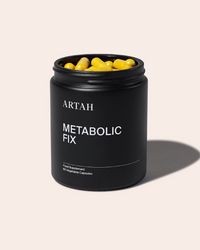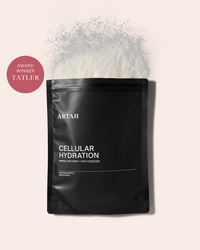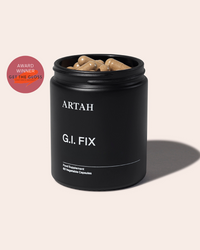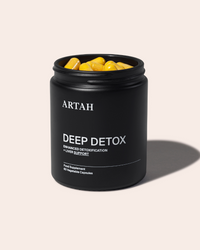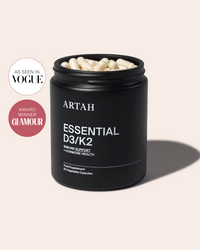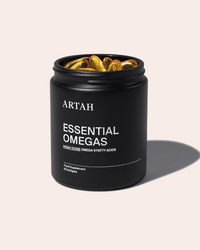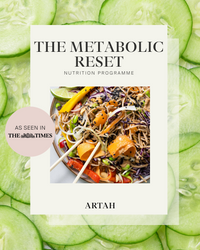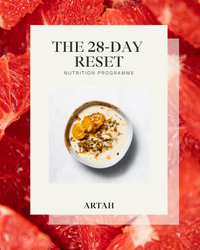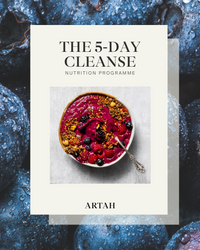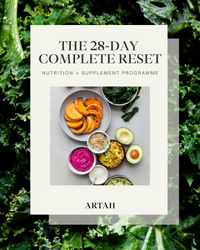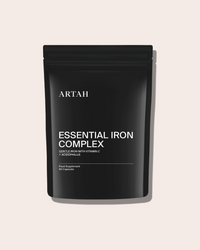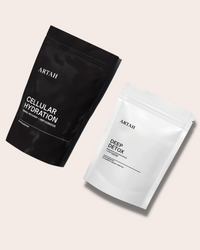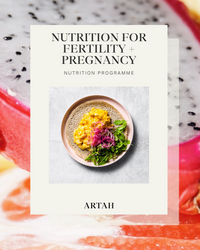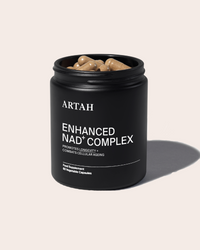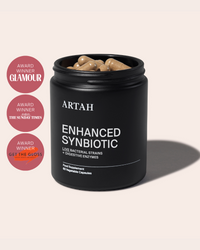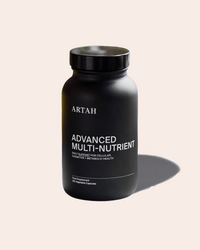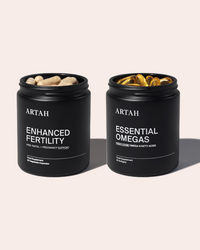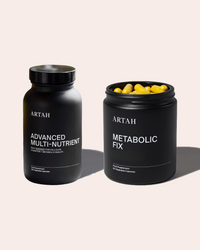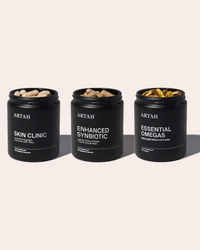How Our Metabolism Changes In The Spring
In the winter, we wrote about how sleep, mood, blood sugar, fat storage, appetite control and energy production are all influenced by seasonal changes.
With spring officially here, it’s time to check in and see how we can flex our routines to take advantage of spring energy. Here are 6 things you need to know.
Insulin sensitivity improves
In the autumn and winter, we naturally become more resistant to insulin – which means blood sugar control, appetite regulation and weight maintenance can all become more challenging. On the flip side, we see this sensitivity start to return in response to more light and an improvement in serotonin, which is involved in appetite regulation and glucose control. If you’ve noticed a sudden improvement in mood, energy, and appetite, hurrah! This will likely continue to improve over the coming weeks.
What can we do? Ride the wave! Most of us will naturally start to adjust to lighter, plant-based meals. Aim to keep protein high and start to replace heavier carbohydrates with lighter grains like quinoa and buckwheat. If you’ve had a particularly sugary winter and are having a hard time with cravings, try Metabolic Fix, packed with Chromium, Berberine, Carnitine, and other blood sugar balancing nutrients that help you curb cravings and stay energised.
Our resting metabolic rate slows down
Insulin resistance in the winter isn’t the only reason we feel a sudden surge in hunger; our resting metabolic rate (RMR) also increases to improve thermoregulation. As we leave the colder months behind, our RMR will adjust to the increasing temperature and can fall by up to 20%.
What can we do? The good news is that it's easier to increase our energy expenditure as the weather becomes more pleasant, whether it be walking, running, or feeling more motivated to get out of bed and exercise. With less insulin resistance and more serotonin, it's also easier to adjust our nutrition without it feeling challenging. If you’ve been eating a little on the heavy side and need a structured reset, try The 5 Day Cleanse for a quick spring cleanse, or if you need something a little more comprehensive to improve metabolism, blood sugar and energy, our 21-day Metabolic Reset is the one for you.
Changes in sleep affect our microbiome
Even though we feel more energetic in spring, it’s common to sleep less than in the winter. Earlier morning light, coupled with later sunsets and exposure to artificial light in the evenings can mean that we get to bed later and rise earlier. Whilst this may seem harmless, it can have a knock-on effect on glucose control, gut health, and stress regulation. Studies have shown that lack of sleep can reduce the diversity of our microbiome and increase stress hormones, both of which can negatively affect gut function, metabolism and mood.
What can we do? As always, try to reduce exposure to light in the evening to help trigger sleep hormones, which may be even more important in the spring if we’re waking earlier. If you’ve been eating fewer vegetables in the cold weather, aim to up your vegetable intake by including fresh spring salads and more plant-based meals to help foster microbial diversity. It can also be helpful to use Enhanced Probiotic to improve digestion, reduce microbial stress and improve metabolic control.
Vitamin D3 is still important
Official guidelines say we should be taking Vitamin D3 until the spring, but it’s unclear as to when the right time to stop is. How do we get enough Vitamin D naturally? Studies show that light skinned individuals can synthesize enough with 20 minutes of midday sun exposure on the skin, three times per week. For dark skinned individuals, it’s more like 60 minutes, three times per week.
What can we do? It’s a good idea to continue with Essential D3/K2 until you’re getting adequate sun exposure.
Be mindful of immunity
Flu season has been particularly bad this year; it started earlier, it’s been more severe, and it’s likely to end later. The good news is that the flu viruses weaken as the temperature increases, but if you’ve been hit particularly hard this year, it’s a good idea to keep supporting the immune system until you’ve felt well for at least 3 months. Try Cellular Defence and Enhanced Probiotic, and keep including functional foods that support immunity.
This article is for educational purposes only and the implementation of the theories and practices discussed is at the sole discretion of the individual. All advice given is not a substitute for medical advice, diagnosis, or treatment. If you have any concerns about your health, you should speak with your physician.









